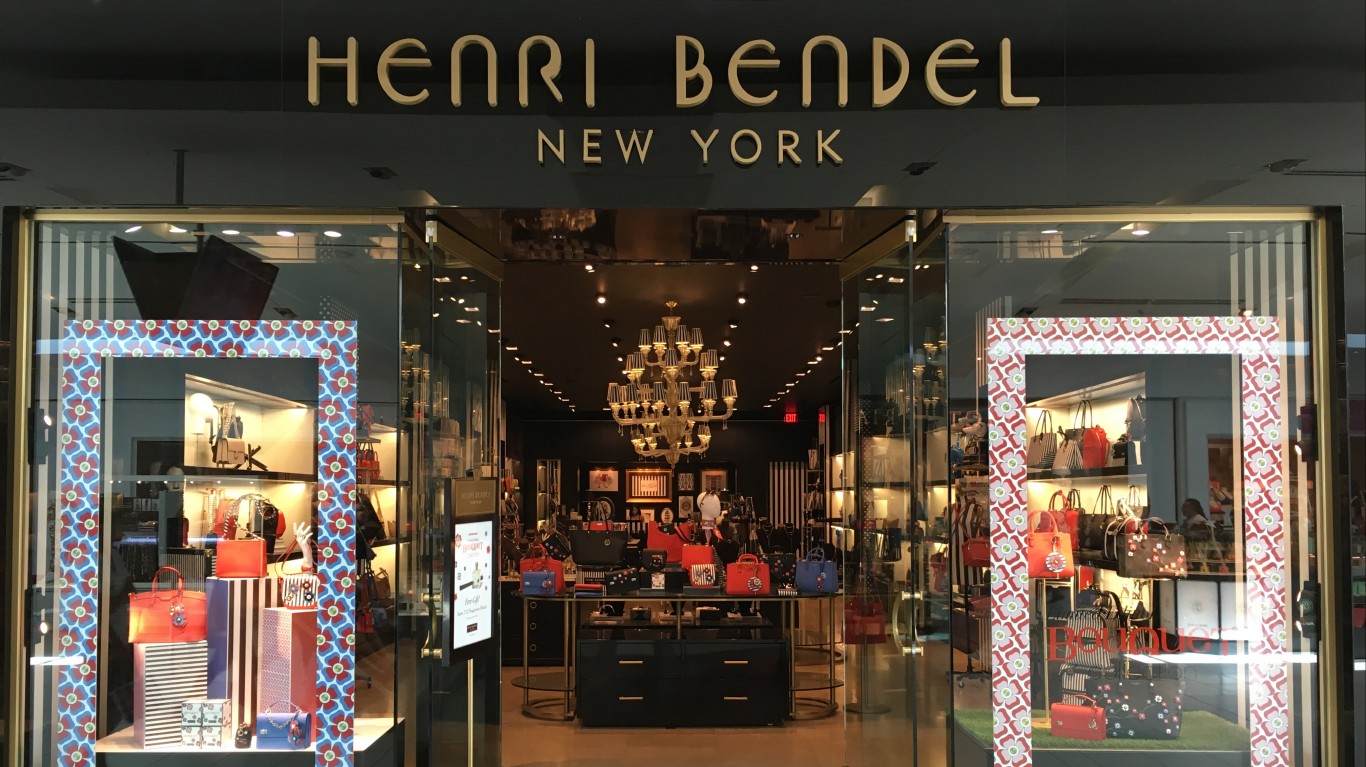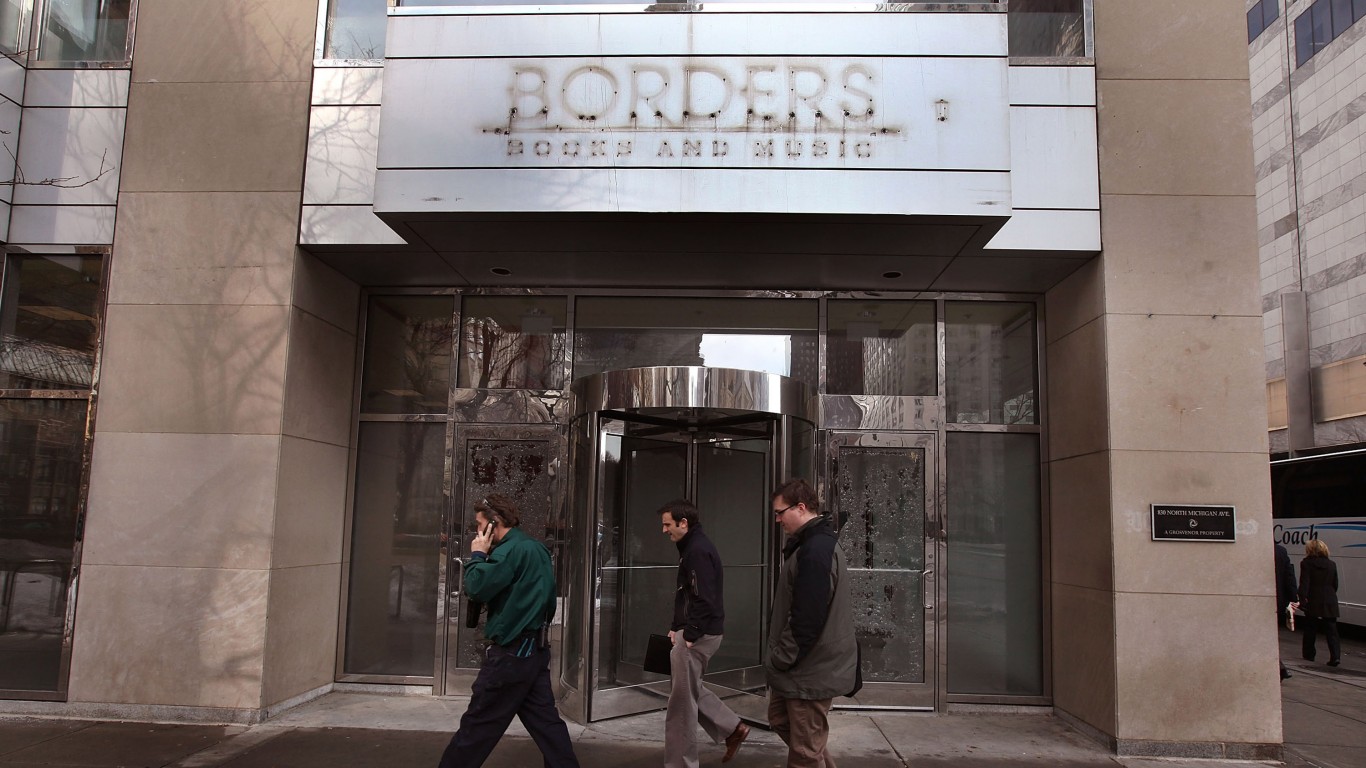
Following the Great Recession in 2008, the American economy grew steadily during the 2010s. The Dow Jones Industrial Average — a gauge for U.S. economic conditions — more than doubled in the past decade, from just over 10,400 at the beginning of the decade to nearly 28,000 in December 2019. While the corporations that make up the DJIA have thrived, many other large and recognizable companies and their brands vanished during that time.
To determine the brands that disappeared in the last decade, 24/7 Wall St. reviewed press releases, financial filings, and other news sources like Fortune to find the major corporations that either went completely out of business or ceased the bulk of their operations between 2010 and 2019.
The companies on this list experienced significant change in its finances or future earning potential in the 2010s — such as a bankruptcy, huge drop in stock price, massive layoffs, or sweeping store closures. Companies that still operate a handful of stores but closed down the vast majority of their locations, such as Toys R Us, were still considered for this list.
Companies can disappear for many reasons. Some on this list went under as a result of market forces. Blockbuster, for example, thrived as the nation’s top video rental chain. When movies and TV shows became available on demand through services like Netflix and Hulu, however, the demand for DVD rentals evaporated. These are America’s dying industries.
Other companies were managed recklessly and failed because of massive lawsuits or criminal proceedings brought against high-level management. These are the companies with the worst (and best) reputations.
Click here to see the brands that disappeared in the last decade
Click here to read our methodology
1. Vine
> Founded in: 2012
> Type of business: Media
Vine was a short-lived but beloved video making app that took the internet by storm in the early 2010s. The app let users make six second videos that looped over and over, often to hilarious effect. Vine was purchased by Twitter in 2012 for $30 million as an easy way for users to shoot and share videos on the social media platform. Many other social media platforms began to offer video services similar to Vine’s — specifically Instagram, which also gave creators a longer time limit on videos. Perhaps as a result, Vine usership plummeted, and Twitter discontinued the app in 2016.
[in-text-ad]

2. Borders
> Founded in: 1971
> Type of business: Retail, books
As Amazon expanded far beyond its initial aim of selling books through the internet, brick-and-mortar book sellers like Borders struggled to keep up. While Borders competitor Barnes and Noble launched its own eBook reader, Borders failed to adapt to shifts in customer preferences and went bankrupt in 2011. The company had nearly $1.3 billion in debt, exceeding the total value of its assets.
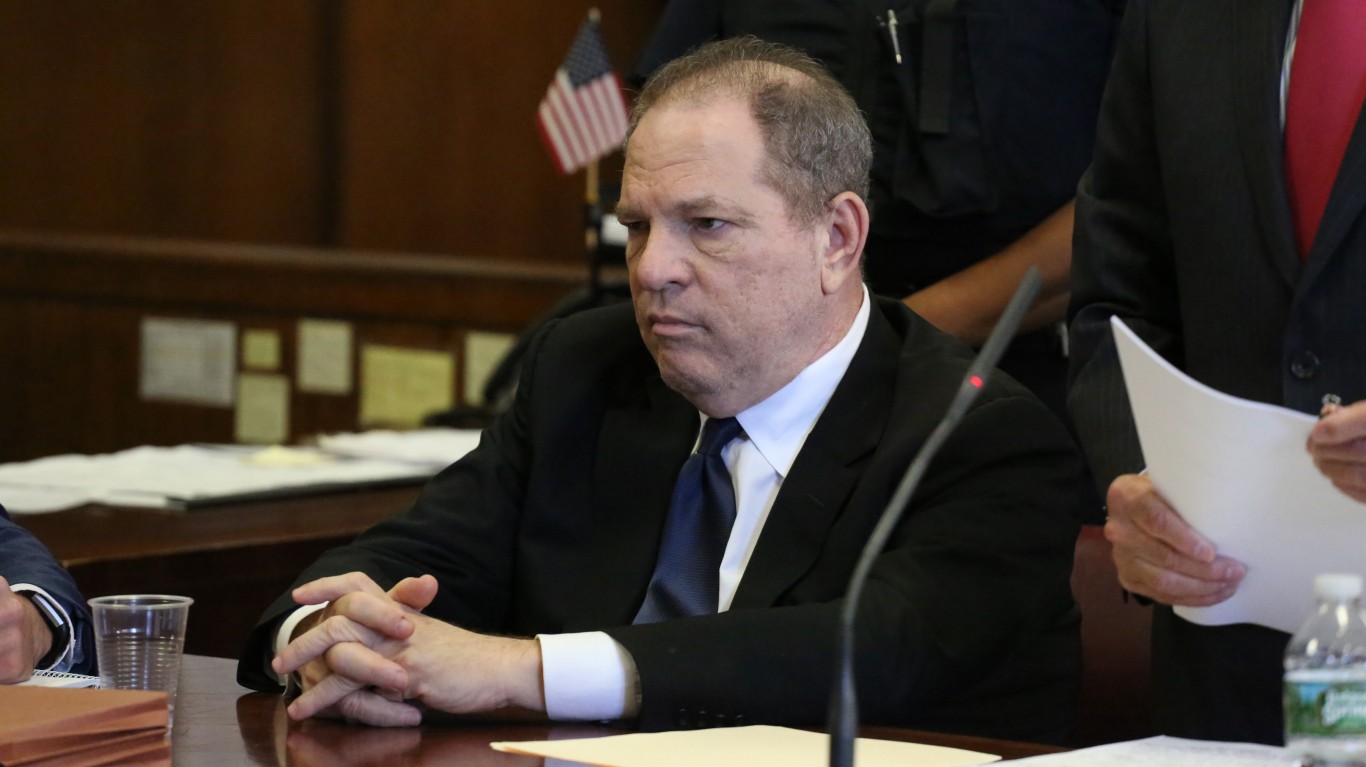
3. The Weinstein Company
> Founded in: 2005
> Type of business: Entertainment
After becoming successful for founding Miramax Films, Harvey Weinstein and his brother Bob founded film studio The Weinstein Company in 2005. In 2017, the New York Times and The New Yorker magazine published accounts from numerous women accusing Weinstein of rape, sexual harrassment, and unprofessional conduct. Following these revelations, the company bearing Weinstein’s name was in a public relations crisis. After an attempted sale fell through, The Weinstein Company declared bankruptcy in early 2018. Lantern Capital eventually won a bidding war for the assets of the company.
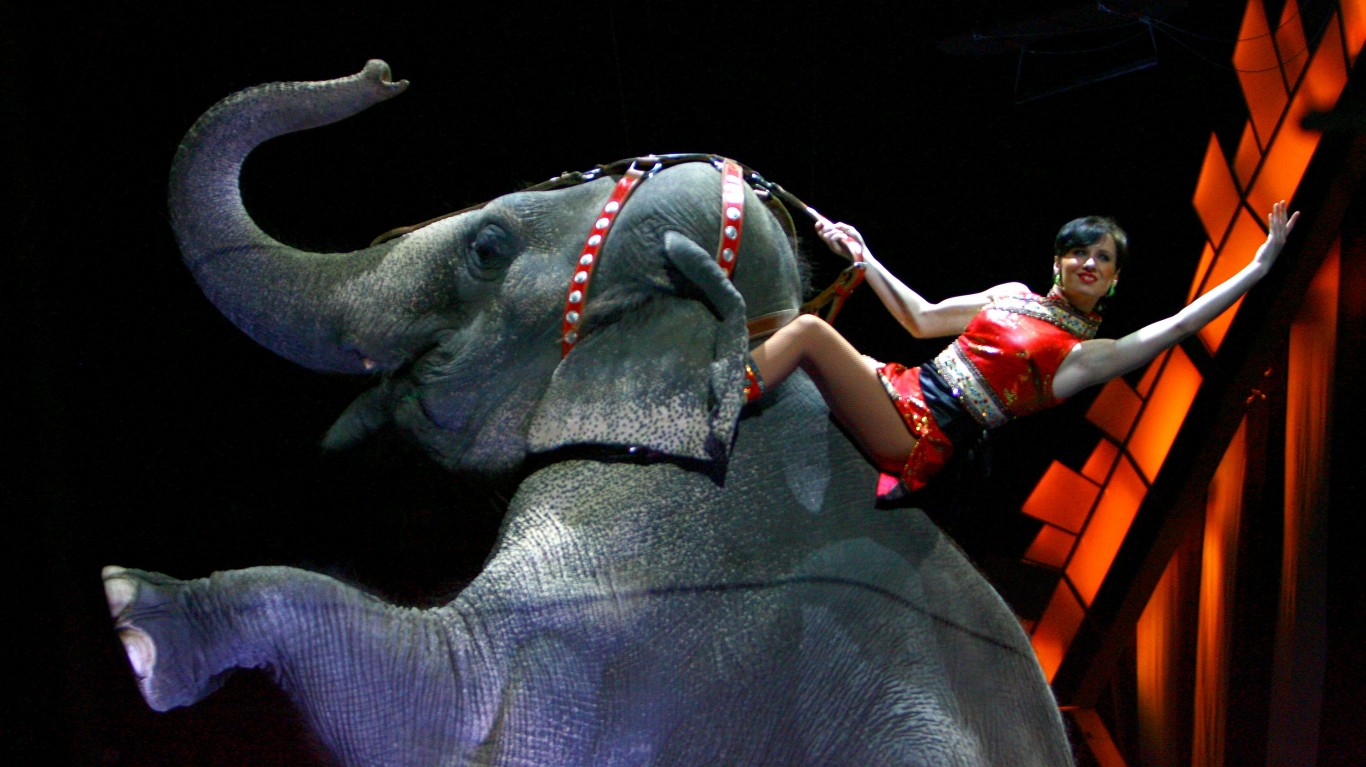
4. Ringling Bros. and Barnum & Bailey Circus
> Founded in: 1884
> Type of business: Entertainment
For nearly 150 years, Ringling Bros. and Barnum & Bailey Circus traveled around the country to entertain the masses. Acquired by Feld Entertainment in 1967, the circus began losing its popularity over the past few decades — attendance has reportedly dropped by as much as 50% since the 1990s.
Animal rights activists continuously targeted the circus for its use of creatures like elephants in the show. Feld Entertainment’s CEO also noted that audiences seemed to be abandoning the circus due to their shortening attention spans and expanding entertainment options. The high cost of moving the show from city to city eventually made the business model untenable. The circus act performed for the final time in 2017.
[in-text-ad-2]
5. Sports Authority
> Founded in: 1987
> Type of business: Retail, sports
In 2005, Sports Authority had $2.5 billion in sales across nearly 400 stores. The following year, the Colorado-based sporting goods retailer became a private company after a buyout by a private equity firm. Over the course of the next decade, Sports Authority faced stiff competition not just from online retailers, but also similar businesses like Dicks Sporting Goods. In March 2016, the company filed for Chapter 11 bankruptcy protection. It initially planned to keep most of its stores open, but eventually decided to shutter all locations. Later that year, Sports Authority’s intellectual property was auctioned off for $15 million to its former competitor Dick’s Sporting Goods.
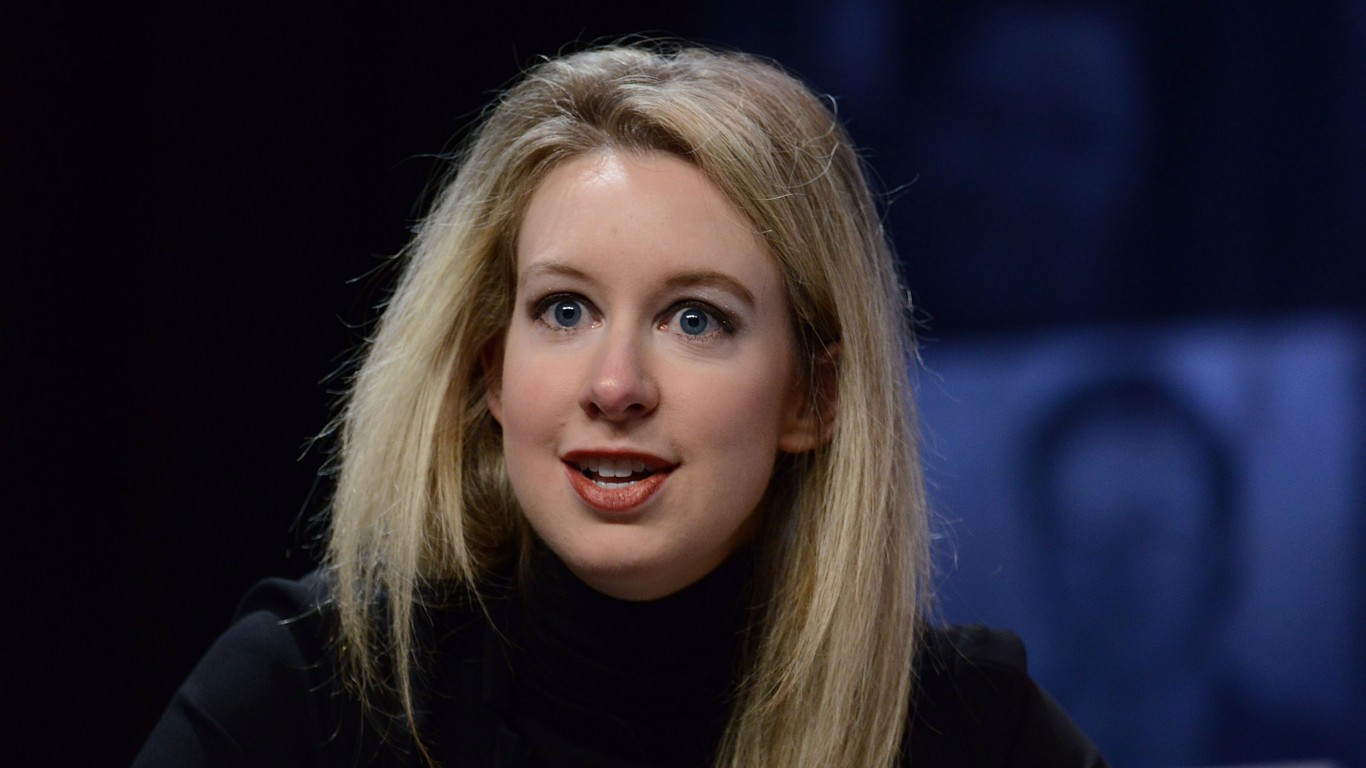
6. Theranos
> Founded in: 2003
> Type of business: Health care
Theranos once appeared to be on the verge of revolutionizing the health care industry, but the entire operation turned out to be a sham. CEO Elizabeth Holmes claimed her company was creating a machine that could diagnose a wide range of diseases by analyzing a few drops of blood from a pricked finger. This promising idea earned Theranos a $9 billion valuation. It was later revealed that Theranos was simply testing customers’ blood using standard testing devices from other companies. Holmes now faces up to 20 years in prison on nine counts of wire fraud and two conspiracy counts related to defrauding investors, doctors, and patients. The company was dissolved in 2018.
[in-text-ad]
7. Payless Shoesource
> Founded in: 1956
> Type of business: Retail, shoes
Discount shoe retailer Payless Shoesource suffered two major setbacks that eventually ended the business in 2019. In 2012, private equity firms bought the company. It appeared to be successful, with $2.3 billion in revenue in 2016. But the problems ran much deeper as Payless declared bankruptcy again in 2019. After the second bankruptcy announcement, the shoe retailer also said it would close all U.S. and Canadian branches — amounting to nearly 2,500 locations.
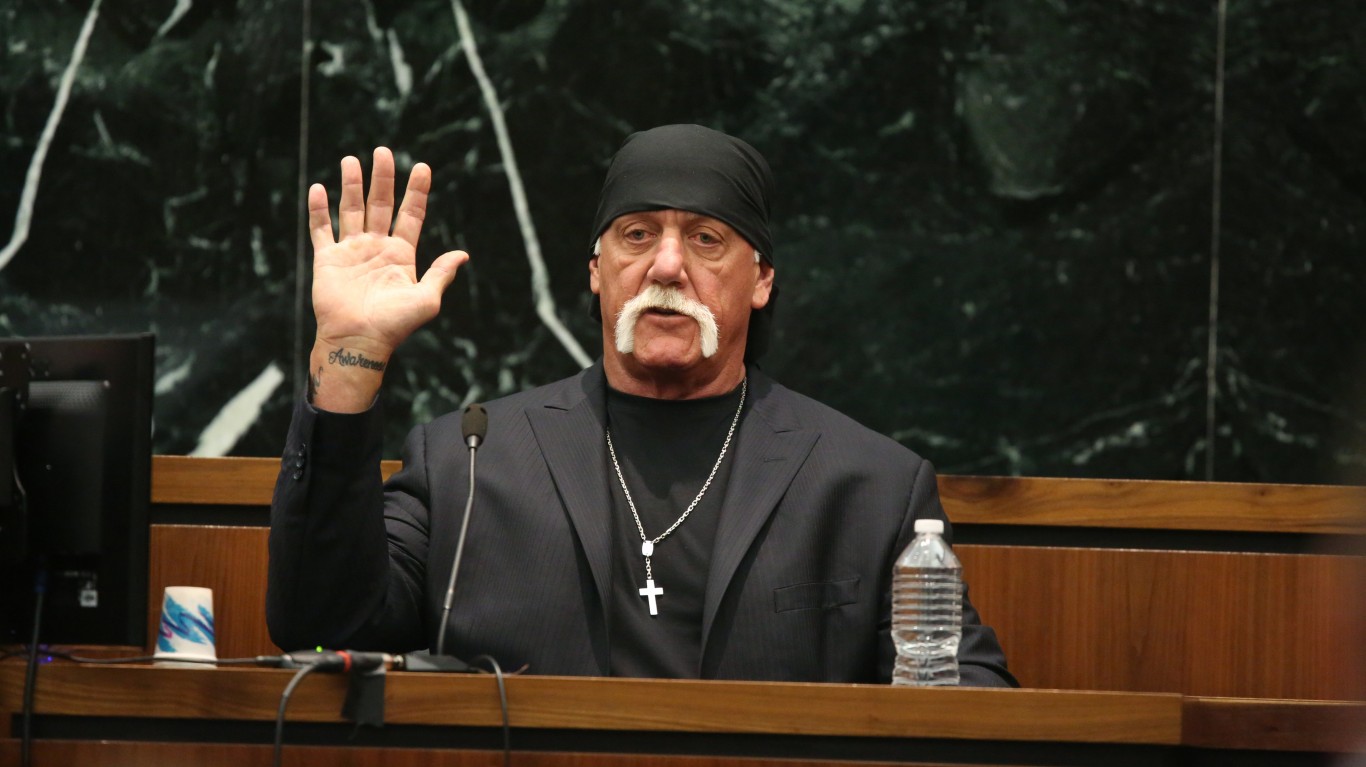
8. Gawker
> Founded in: 2003
> Type of business: Media
Gawker was an incredibly popular gossip blog that spawned a media empire, including specialty sites like Jezebel, io9, Deadspin and Kotaku. It was also one of the most divisive sites on the internet, publishing revealing pieces, frequently outing public figures as gay — including tech billionaire Peter Thiel. Thiel evidently held a grudge against Gawker and eventually funded a violation of privacy lawsuit filed by pro wrestler Hulk Hogan after Gawker published a sex tape of Hogan without his or his partner’s permission. Hogan, real name Terry Bollea, won a $140 million judgement, which bankrupted Gawker. The company was put up for auction.
Univision acquired all the brands under the Gawker Media umbrella but shut down Gawker.com itself as the brand could have been a target of further lawsuits. Gawker.com was purchased by Bustle and planned to relaunch in 2019, but after a series of disagreements among staff and management, the relaunch was postponed and the staff laid off.
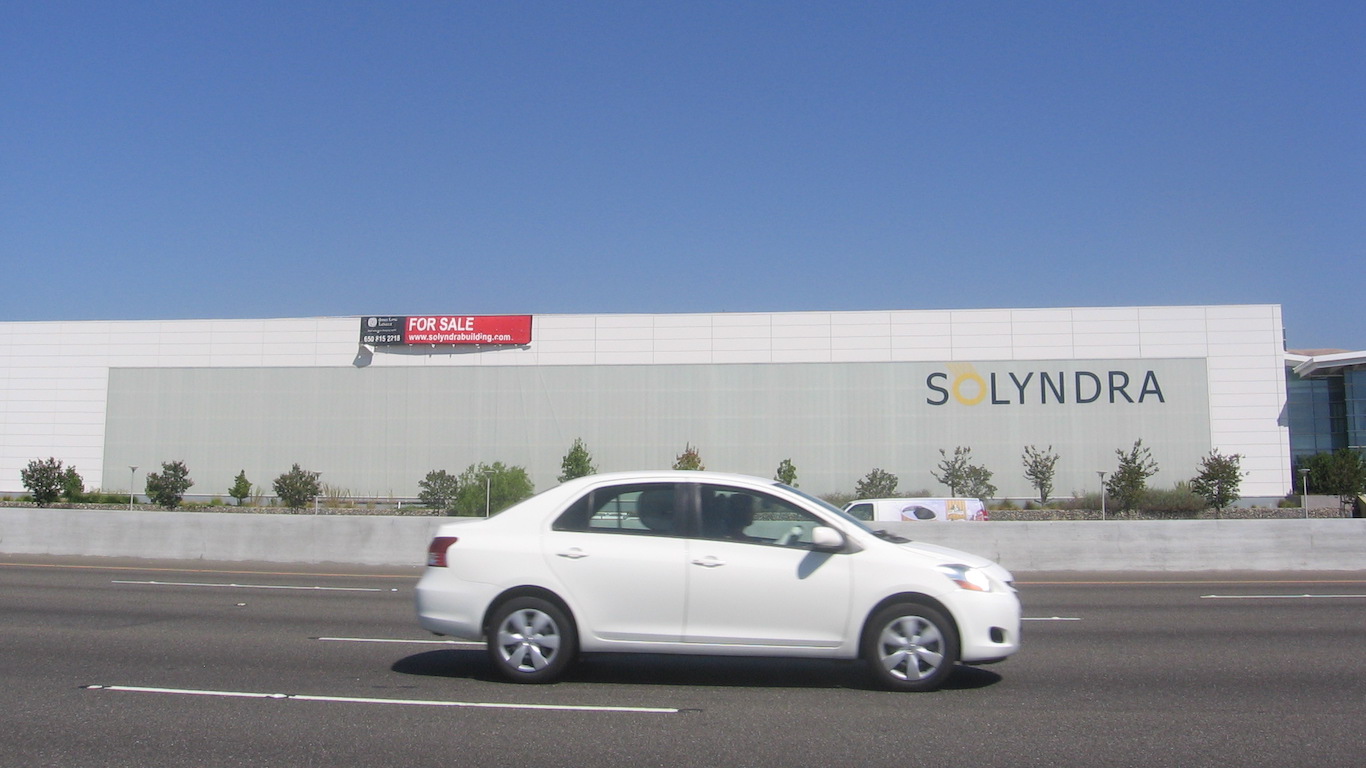
9. Solyndra
> Founded in: 2005
> Type of business: Tech, solar panels
Solar panel manufacturing company Solyndra was a Silicon Valley darling, raising about $1 billion in venture capital funds and getting a $535 million loan thanks to a U.S. Department of Energy green power initiative. When the company went out of business in 2011, it became the most well-financed flop in U.S. venture capital history. Even though it had $140 million in revenue, the influx of cheaper solar panels put Solyndra out of business in 2011.
[in-text-ad-2]
10. Dressbarn
> Founded in: 1962
> Type of business: Retail, clothing
Dressbarn was one of many companies that have suffered with the decline of the American mall. A staple at many large malls and shopping centers, Dressbarn offered professional women’s clothing at hundreds of locations across the country. In 2019, the company announced it would close down all of its approximately 650 nationwide stores. Dressbarn’s CFO said the company was not “operating at an acceptable level of profitability in today’s retail environment.”
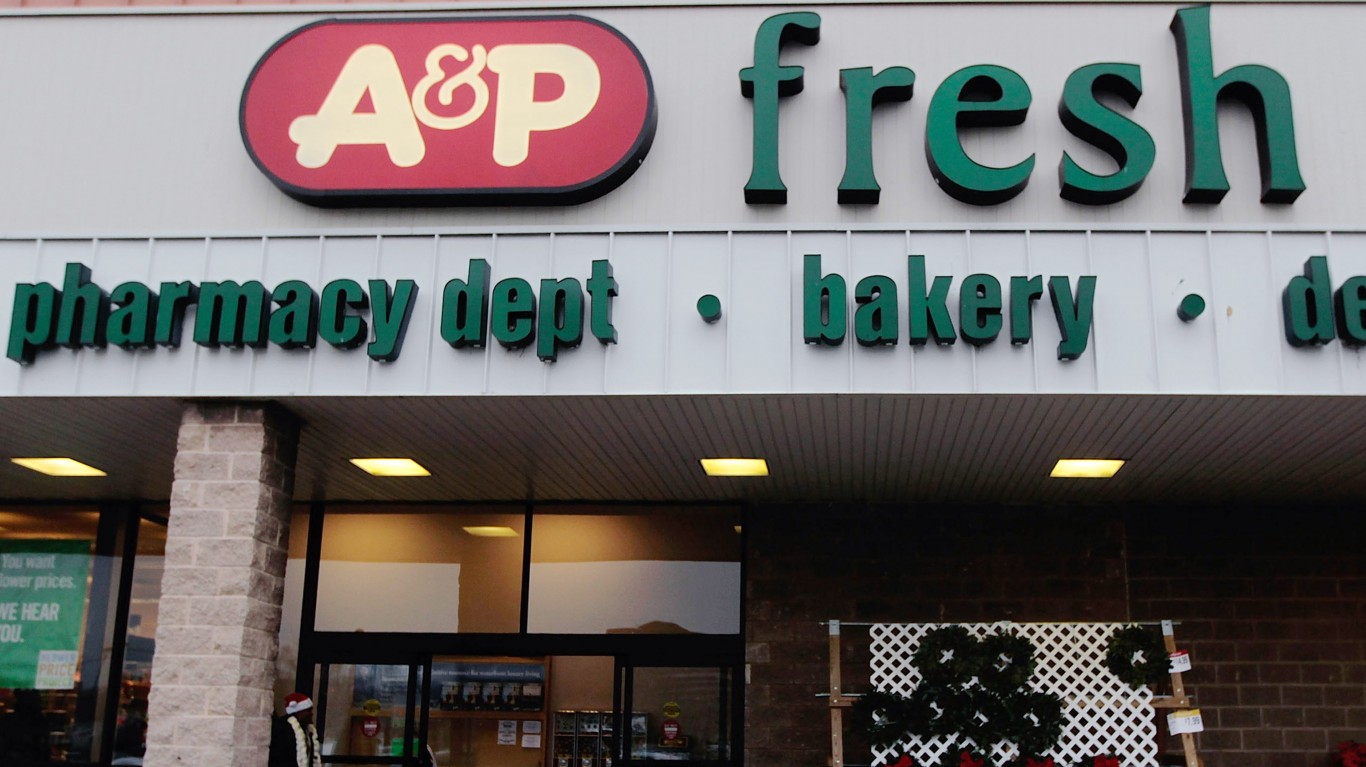
11. A&P Supermarket
> Founded in: 1859
> Type of business: Grocery store
A&P Supermarket disappeared in 2015 after more than 150 years in business as it could not compete with cheaper grocers like Walmart or higher-end chains like Whole Foods. A&P first went bankrupt in 2010, declaring $2.5 billion in assets and $3.2 billion in debt, before re-establishing itself as a private company two years later. The company again declared bankruptcy in 2015, this time shuttering or selling all of its locations.
[in-text-ad]
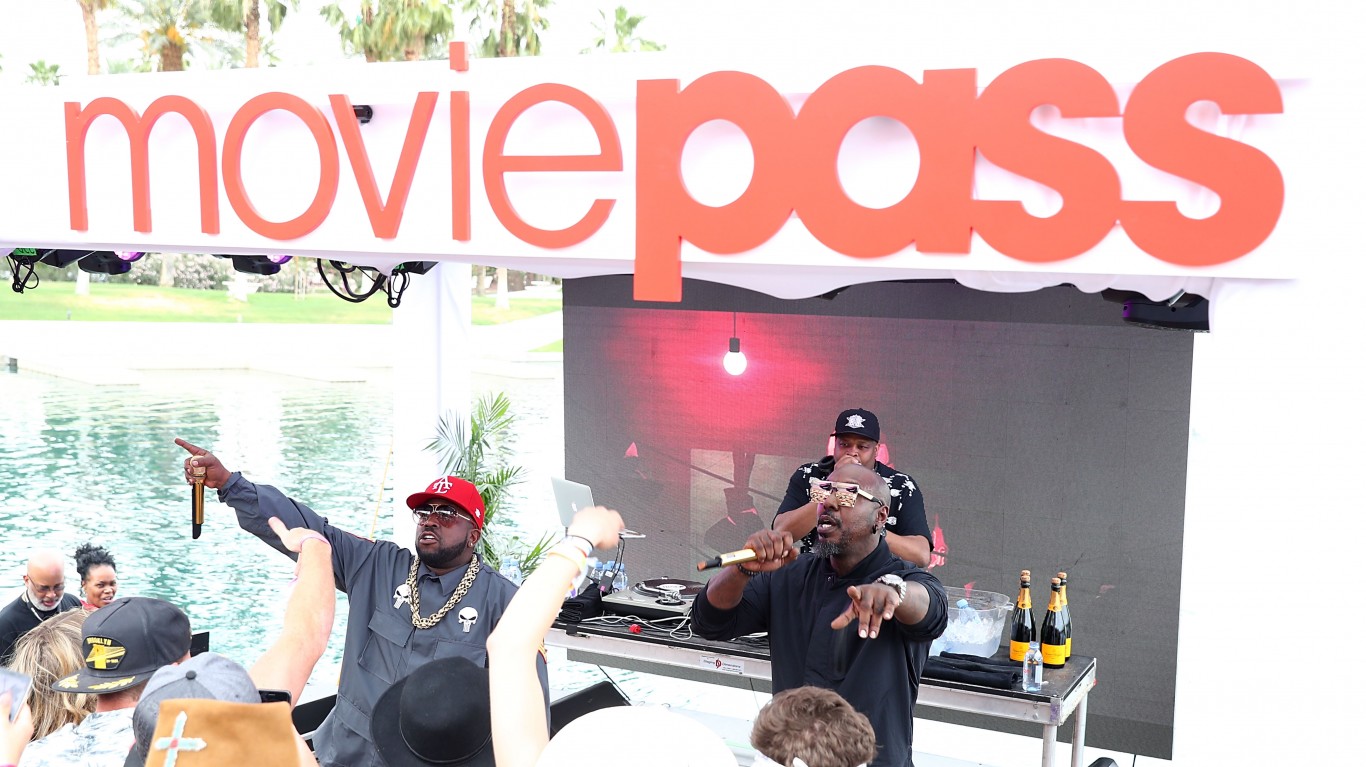
12. MoviePass
> Founded in: 2011
> Type of business: Entertainment
MoviePass allowed users to pay a flat monthly fee (first $50, then the price dropped to $9.95) to see as many movies as they wanted in theaters. According to MoviePass co-founder Stacy Spikes, the $9.95 price point was simply to low for the business model, which aimed to gain more revenue from the data it could glean from its customers. Spikes said parent company Helios and Matheson Analytics gained so many users after lowering the price, they refused to raise it.
With users seeing millions of dollars worth of movies each month on the company’s dime, the model became unsustainable and Helios and Matheson was bleeding cash. The company began imposing restrictions, blacking out certain films, and gained a reputation for poor customer service, driving away users. Finally, in September 2019, MoviePass ceased operations. At one point in 2018, Helios and Matheson stock was worth over $2,000 per share. Now it is worth less than a penny.
13. Teavana
> Founded in: 1997
> Type of business: Retail, tea
Starbucks is the nation’s leading coffee seller, and in 2012, the company decided to venture into tea, acquiring Teavana for about $620 million. Many Teavana stores were located in shopping malls, which have experienced a significant decline in foot traffic in recent years. Starbucks decided in 2017 to close all of Teavana’s nearly 400 locations.
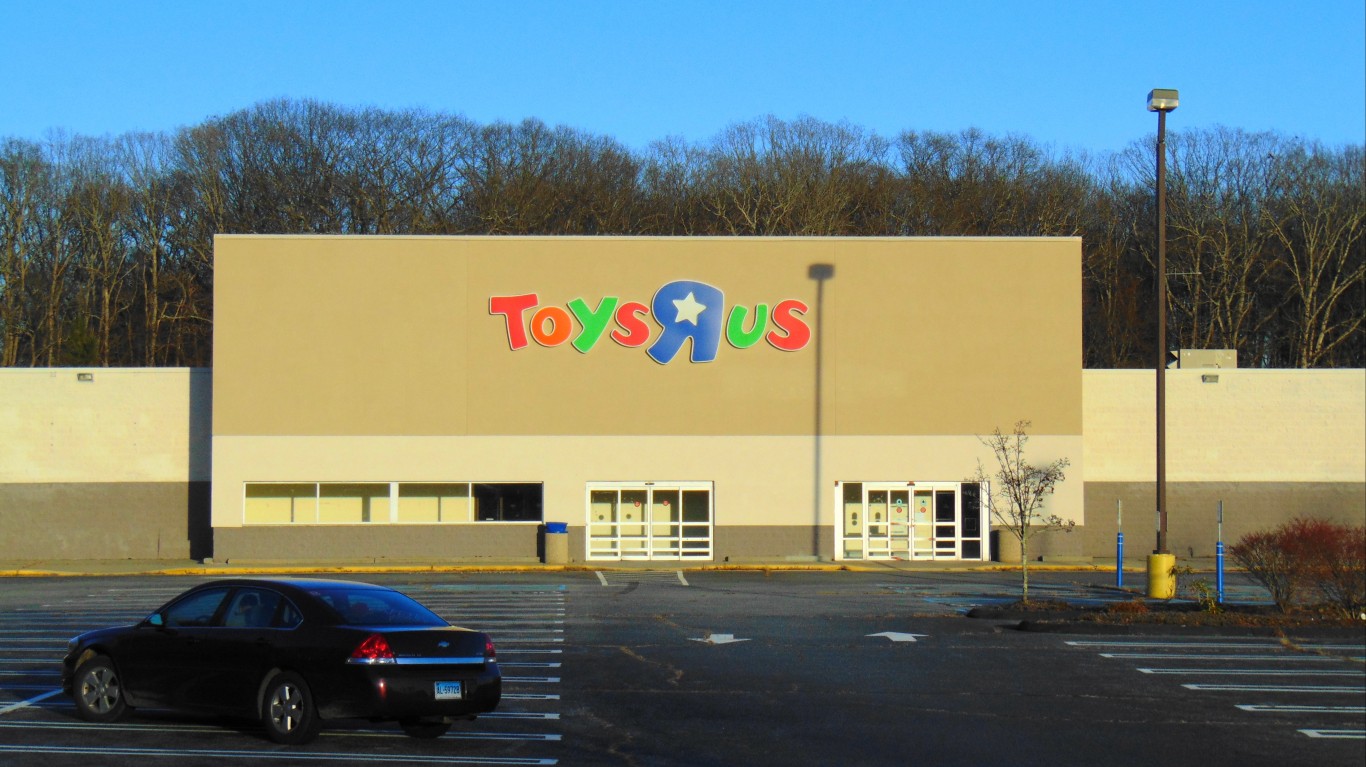
14. Toys R Us
> Founded in: 1957
> Type of business: Retail, toys
Toys R Us was once a corporate juggernaut, controlling a quarter of the world’s toy market with nearly 1,500 stores in the 1990s. The company’s fortunes changed in the 21st century. Several private equity firms combined to take Toys R Us private in a $6.6 billion leveraged buyout deal in 2005. The company registered for an IPO in 2010 but withdrew the application in 2013 as sales have been declining. In 2017, Toys R Us filed for bankruptcy, with $5 billion worth of debt. The next year, the company announced plans to close all of its 800 or so remaining stores.
[in-text-ad-2]
15. Gymboree
> Founded in: 1976
> Type of business: Retail, clothing
Gymboree sold children’s clothing largely in shopping malls since its founding in 1976. At one time, it operated nearly 1,300 stores. It was purchased by Bain Capital in 2010. As malls have been drawing less and less foot traffic over time, the company began to struggle. In 2017, Gymboree declared bankruptcy with about $1 billion in debt. The company eventually announced it would be liquidating all remaining stores.

16. Alta Motors
> Founded in: 2010
> Type of business: Vehicles, electric motorbikes
Even as electric cars like Tesla have been taking off, one of the major players in electric motorbikes shut down operations in 2018. Alta Motors had expanded to more than 70 dealerships by 2018, but it failed to maintain a firm financial footing, even though sales had increased 50% in 2018 and reviewers and journalists seemed to be impressed with the product. A potential partnership with Harley-Davidson reportedly fell through, and the company ceased operations in 2018.
[in-text-ad]
17. Vertu
> Founded in: 1998
> Type of business: Tech, phones
Vertu was founded in 1998 by Nokia as a high-end luxury phone maker. Vertu phones were often covered in jewels and other precious metals, costing over $10,000 for even the most basic of models. Nokia spun it off in 2012 to a Swedish private equity group that paid over $200 million for Vertu in 2012. The phones were difficult to sell, in part because of the high price point, but also because the technology itself was inferior to other phones on the market. The company was struggling over the next few years, posting losses of more than $60 million in 2014. Vertu was sold to a Hong Kong-based fund in 2015, then to an exiled Turkish businessman in 2017. That year, it was revealed the company had over $130 million in debt, and it was liquidated.
18. American Apparel
> Founded in: 1989
> Type of business: Retail, clothing
Once a shopping mall staple, there are no more physical American Apparel locations in any of America’s malls. At its peak, the company was valued at over $1 billion, and once had over $600 million in sales. But the company filed for bankruptcy in 2015 after failing to turn a profit for six years. The clothing retailer would file for bankruptcy again just over a year later. American Apparel laid off employees and auctioned off its brand and equipment for just $88 million. It now operates as an online-only retailer.
19. Compaq
> Founded in: 1982
> Type of business: Tech, computers
Compaq was once one of the leading computer companies in America and the world overall. After its 1982 founding, the company had experienced tremendous growth, and by 1994, it controlled over 10% of the global computer marketplace. At its peak in 2000, Compaq was worth $40 billion. Yet competitors like Dell were able to eat up much of Compaq’s market share by selling directly to customers and allowing customization, while Compaq had distribution deals with retailers like Best Buy and Circuit City. In 2002, Compaq was acquired by HP for $24 billion in a controversial and contentious merger. HP retired the Compaq name in 2013.
[in-text-ad-2]
20. Pebble
> Founded in: 2012
> Type of business: Tech, wearables
Tech startup Pebble appeared poised for success after raising over $10 million on Kickstarter — then the most successful campaign of all time — to fund its early venture into smartwatches. While Apple was still focused on iPhones and iPods, Pebble’s campaign proved people would be interested in wearable tech. Once Pebble watches hit the market, sales were solid and reviews were mostly positive.
By 2015, Pebble was valued at $740 million — but it would be out of business the following year as Apple released its own smartwatch. Pebble struggled with supply chain issues, while Apple Watches took up more and more of the smartwatch market share. Pebble was unable to compete and was sold to FitBit for less than $40 million.
21. Jawbone
> Founded in: 1999
> Type of business: Tech, wearables
Jawbone is a classic case of a unique Silicon Valley phenomenon: “death by overfunding.” The wearable tech company, known for making Bluetooth headsets and speakers, was once worth billions of dollars, but only because of all the capital it raised and not necessarily because of its earning potential. The company raised about $900 million in funding, which boosted its peak valuation to $3.2 billion in 2014.
By 2017, Jawbone was facing lawsuits from vendors, who said the company owed them money, and the company entered liquidation. According to Reuters, only one other venture capital-supported startup, solar panel maker Solyndra, raised more capital than Jawbone, and it also went out of business.
[in-text-ad]
22. Palm
> Founded in: 1992
> Type of business: Tech, phones
Well before smartphones, PDAs — personal digital assistants — were a must-have device. The company that manufactured them, Palm, rose in value quickly. In 1998, Palm had more than two-thirds of the world’s PDA market. It had a massively successful IPO in 2000 when it was spun off from parent company 3Com, and like many tech companies of that era, Palm was riding the dotcom bubble that was about to burst. At its peak in 2000, Palm’s valuation was more than $53 billion, making it one of the most valuable companies in the world. Competitors like Sony began to eat into the PDA market, and once the tech bubble burst, Palm’s stock price came crashing down. By 2009, Palm was bleeding cash, and it was acquired by HP for $1.2 billion in 2010. HP announced in 2011 it would no longer make Palm hardware and retired the brand.
23. Henri Bendel
> Founded in: 1895
> Type of business: Retail, luxury
Once an iconic department store, Henri Bendel shuttered all of its remaining locations in 2019. In 2018, the brand operated at a $45 million loss. The luxury retailer, which was owned by L Brands, suffered the same fate as many other high-end stores. Many brick-and-mortar operations struggled to compete with online shopping, while industry analysts believe consumers have been spending less on luxury goods in favor of other purchases like phones and other tech.
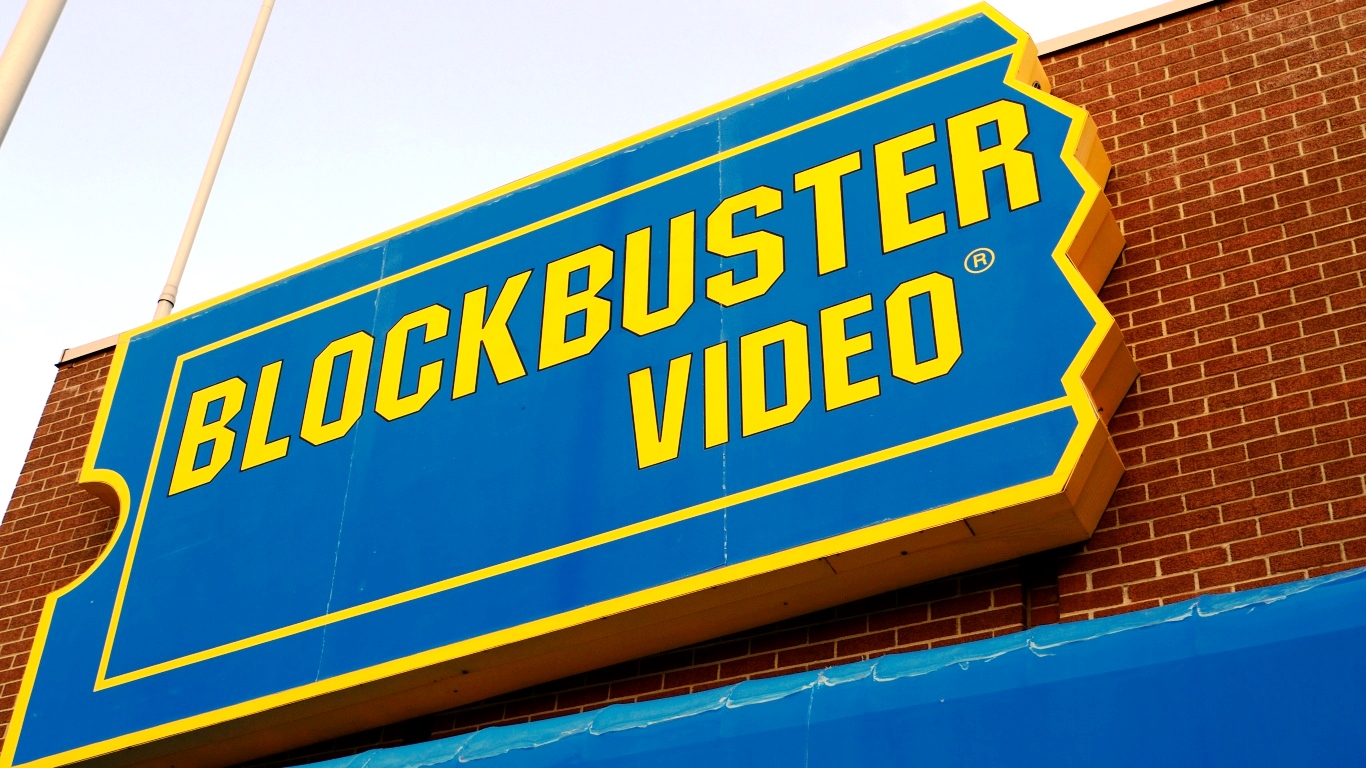
24. Blockbuster
> Founded in: 1985
> Type of business: Retail, entertainment
Even before the advent and surging popularity of streaming services like Netflix, Hulu, and Amazon Prime, Blockbuster was struggling. The once-ubiquitous video rental store has been in decline since 2004, when it had 9,000 stores worldwide. Blockbuster now has just one location — in Bend, Oregon. The decision to abandon online service helped doom the company, which filed for bankruptcy in 2010.
Methodology
To determine the brands that disappeared in the last decade, 24/7 Wall St. reviewed press releases, financial filings, and other news sources like Fortune to find the brands of major companies that either went completely out of business or ceased the bulk of their operations between 2010 and 2019.
The brands that make up this list in some cases still exist, and may have a resurgence in the coming years, but the brands on this list either entirely ceased to exist or their parent company lost the vast majority of its remaining business during the decade. These changes were signalled by bankruptcy, significant drops in stock price, major layoffs, or the closure of the vast majority — or all — stores.
Some of the brands that disappeared this decade, such as Theranos, underwent sudden and rapid losses of business. Others, such as Compaq, were already struggling, but were dealt the final death blow this decade.
Get Ready To Retire (Sponsored)
Start by taking a quick retirement quiz from SmartAsset that will match you with up to 3 financial advisors that serve your area and beyond in 5 minutes, or less.
Each advisor has been vetted by SmartAsset and is held to a fiduciary standard to act in your best interests.
Here’s how it works:
1. Answer SmartAsset advisor match quiz
2. Review your pre-screened matches at your leisure. Check out the advisors’ profiles.
3. Speak with advisors at no cost to you. Have an introductory call on the phone or introduction in person and choose whom to work with in the future
Thank you for reading! Have some feedback for us?
Contact the 24/7 Wall St. editorial team.

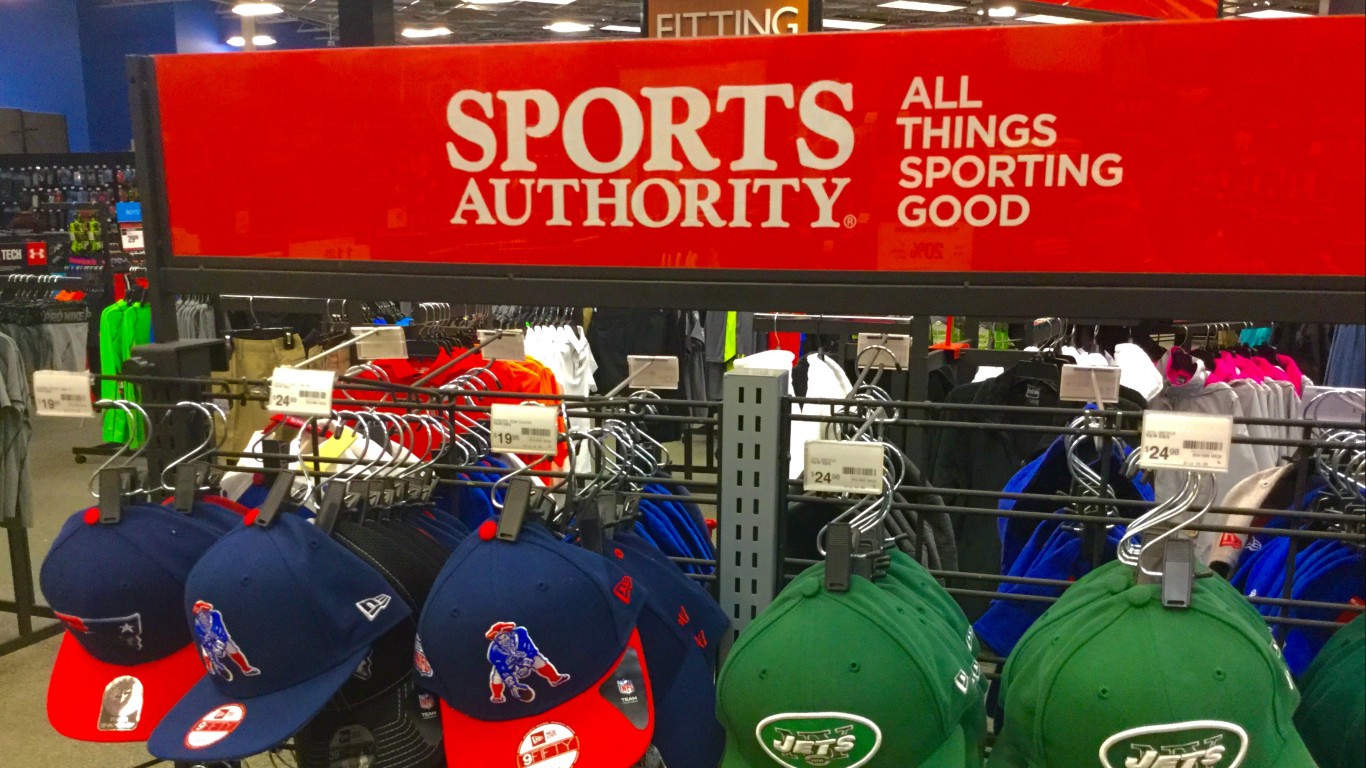
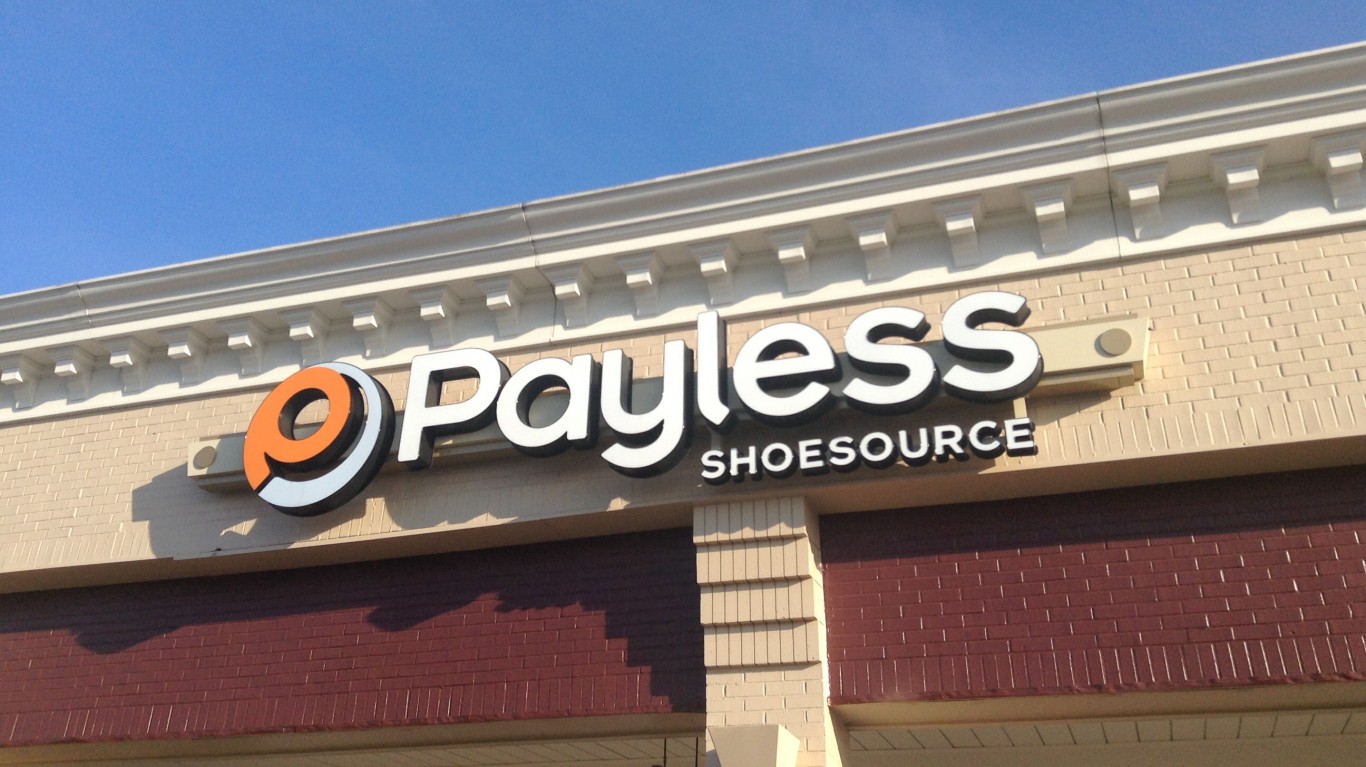
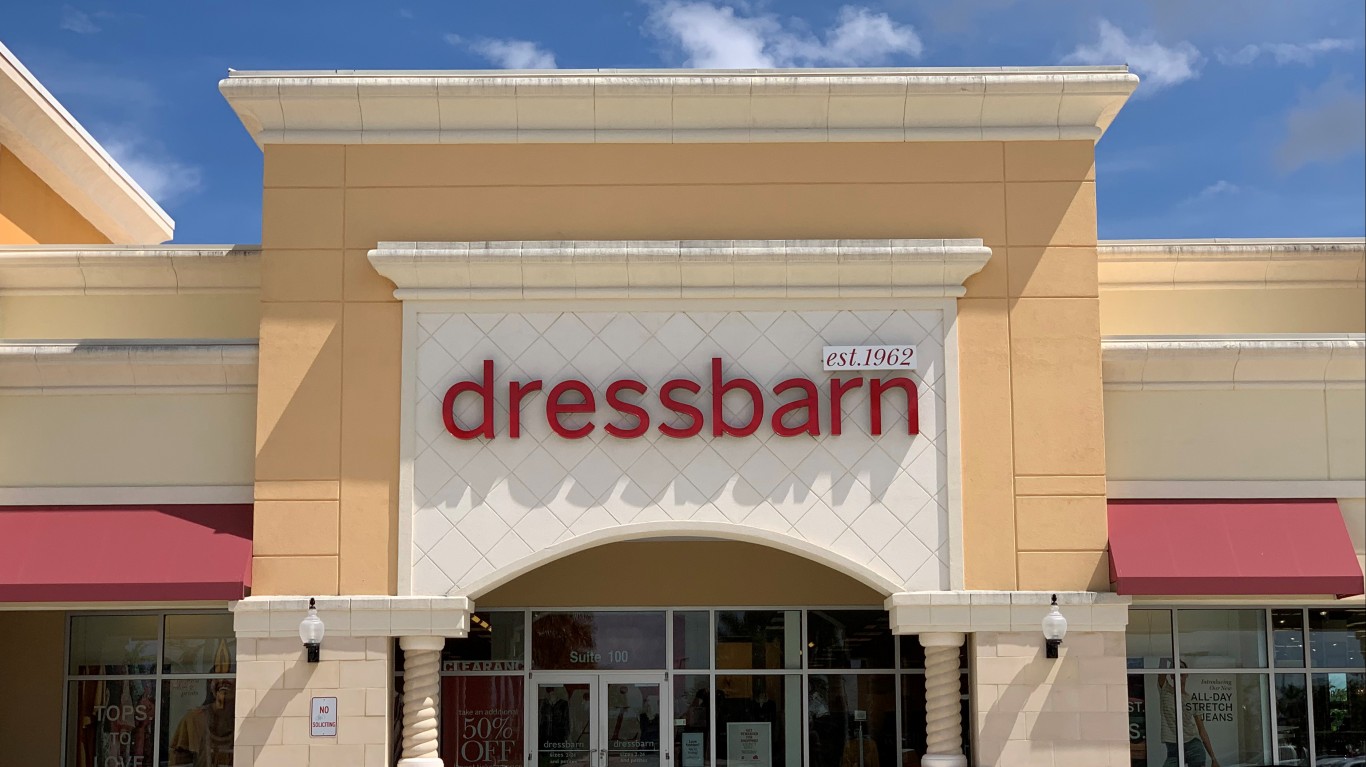
 24/7 Wall St.
24/7 Wall St.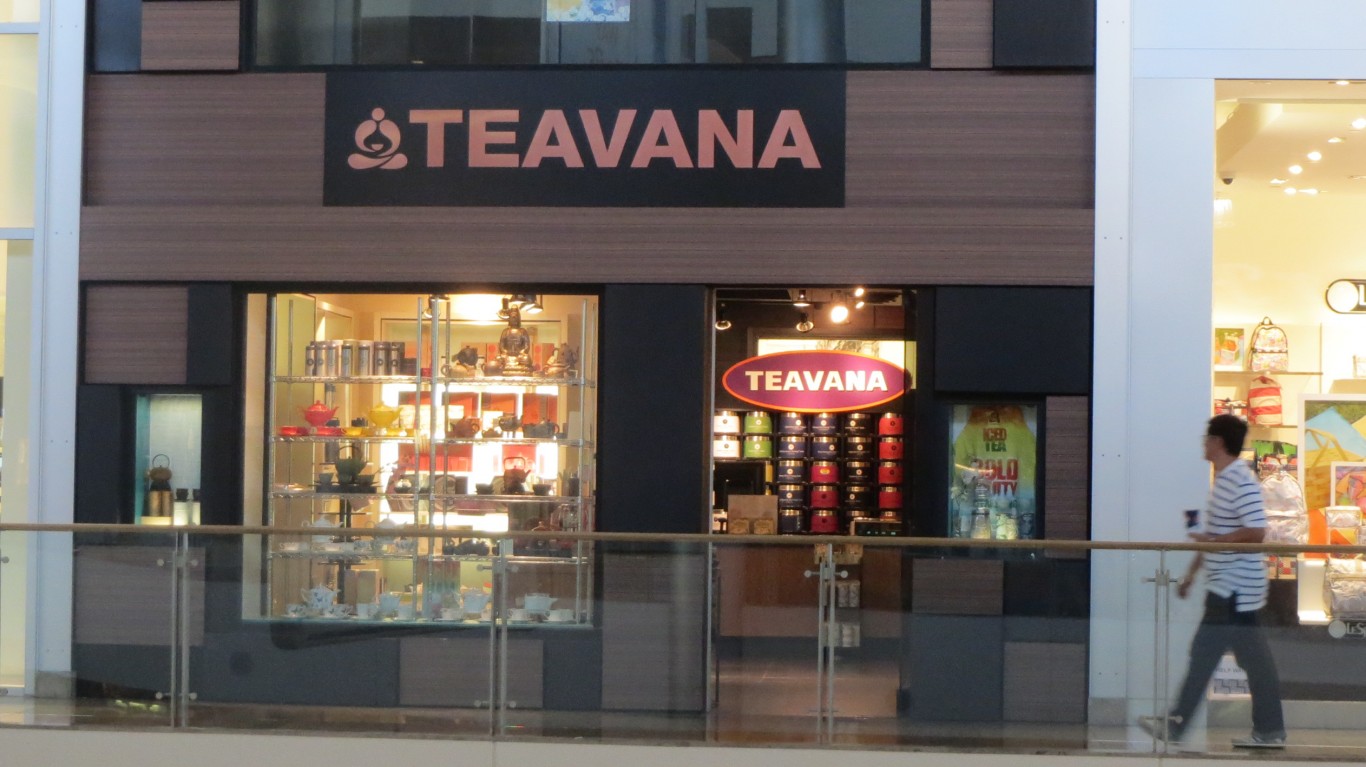
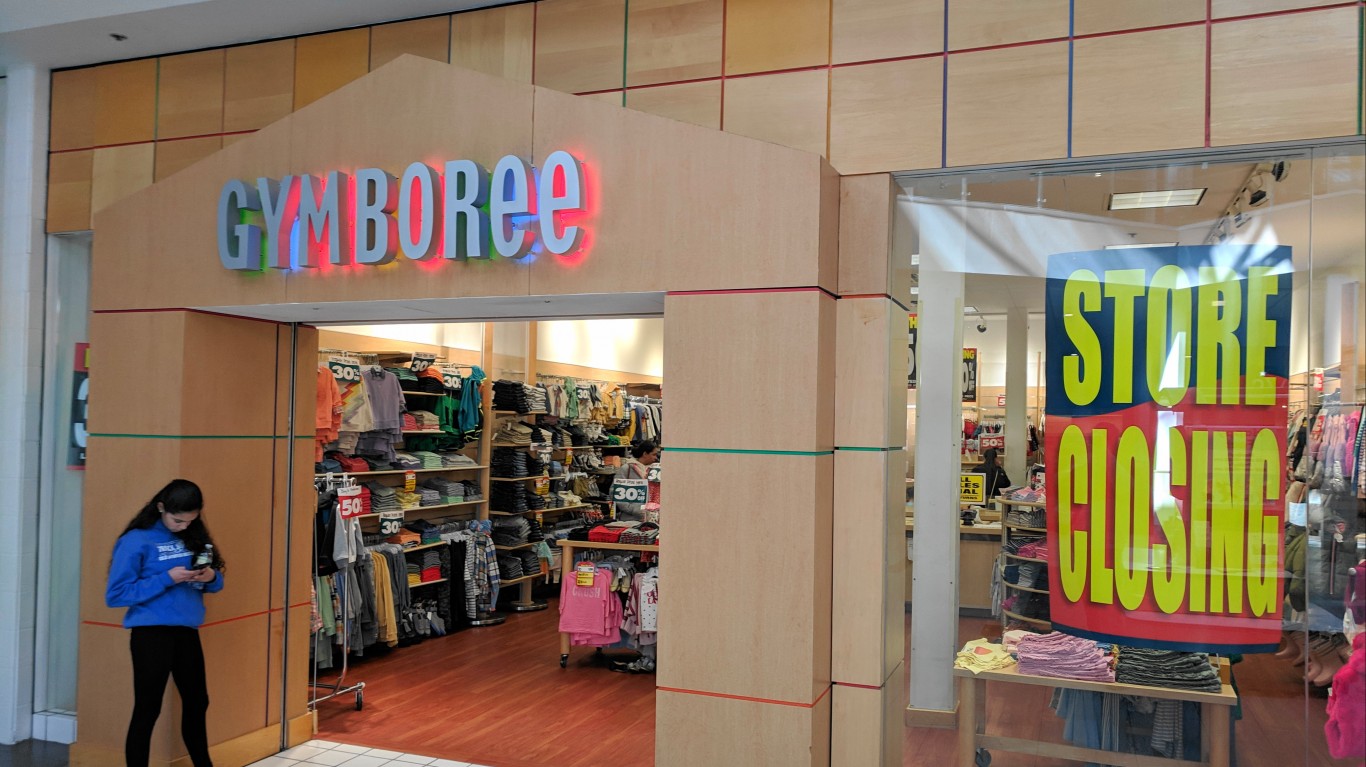
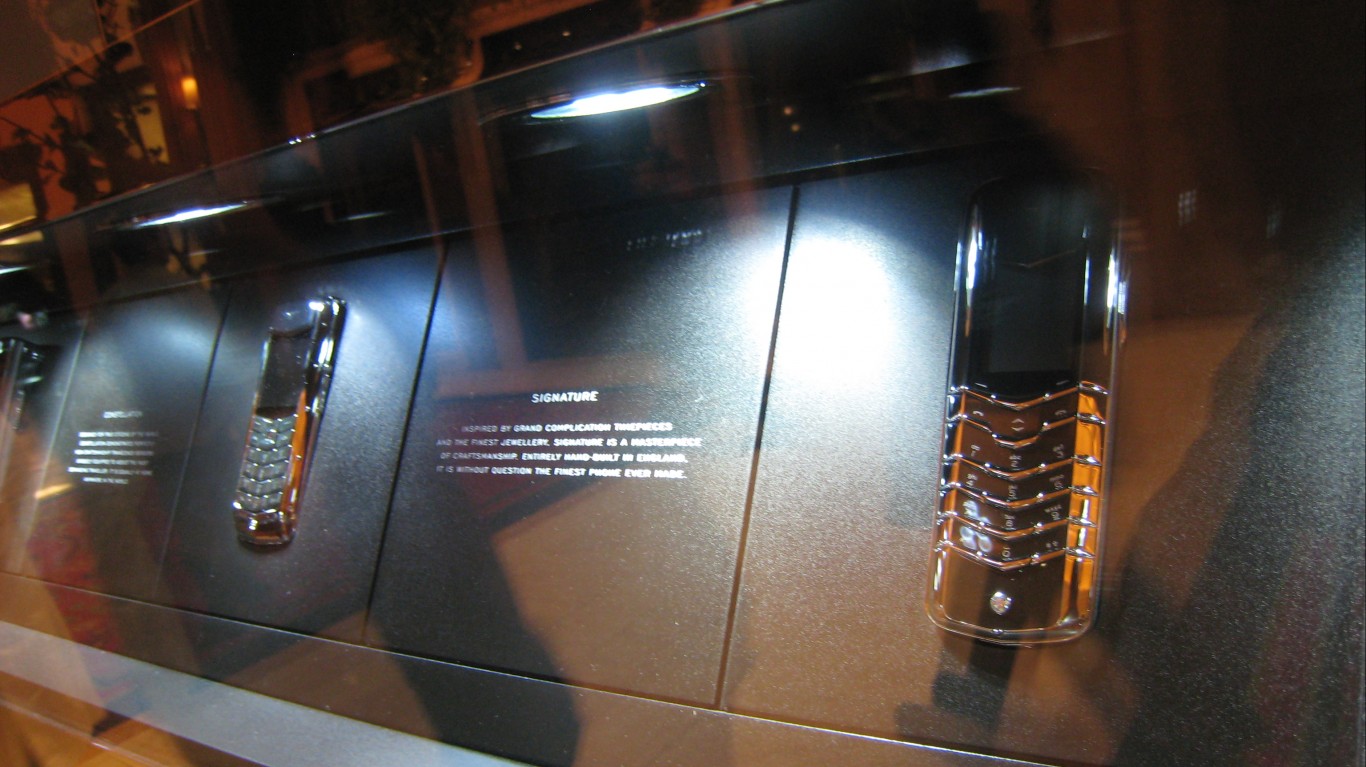
 24/7 Wall St.
24/7 Wall St.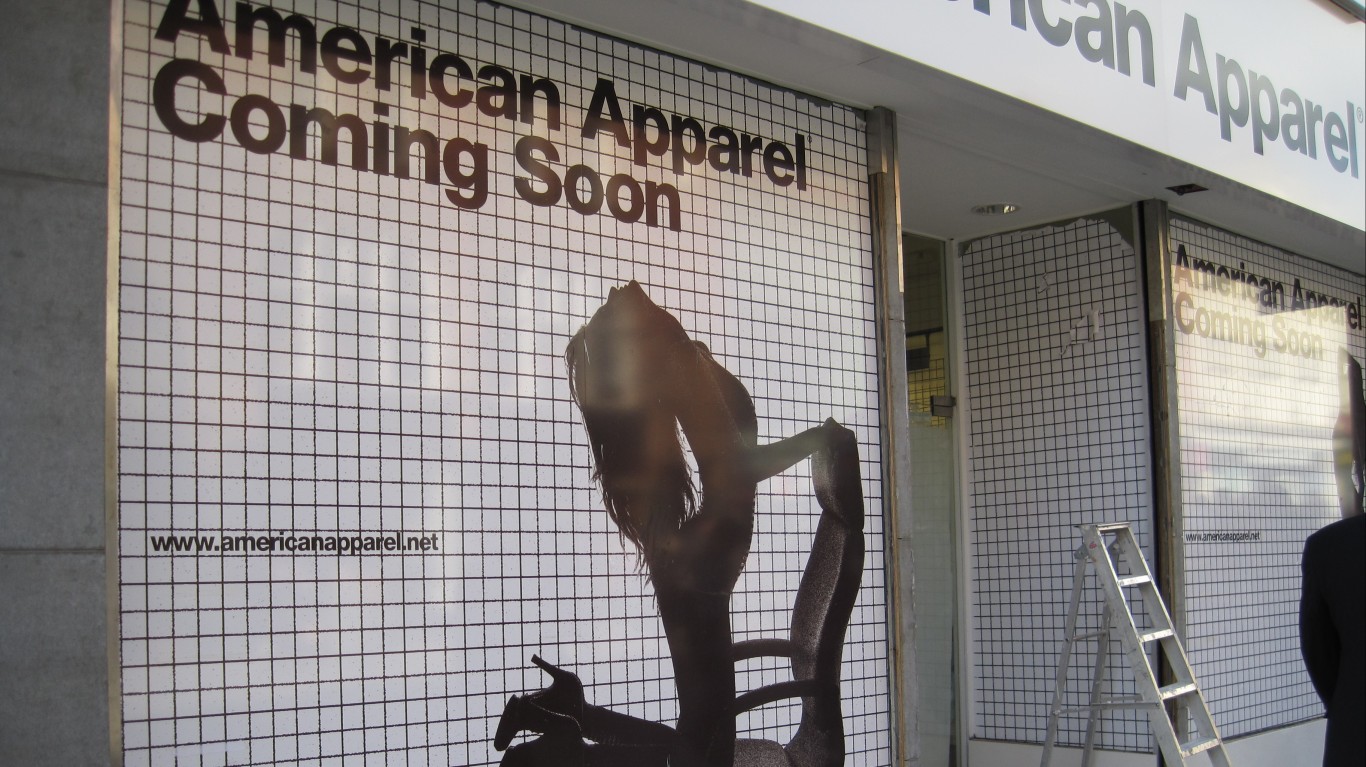
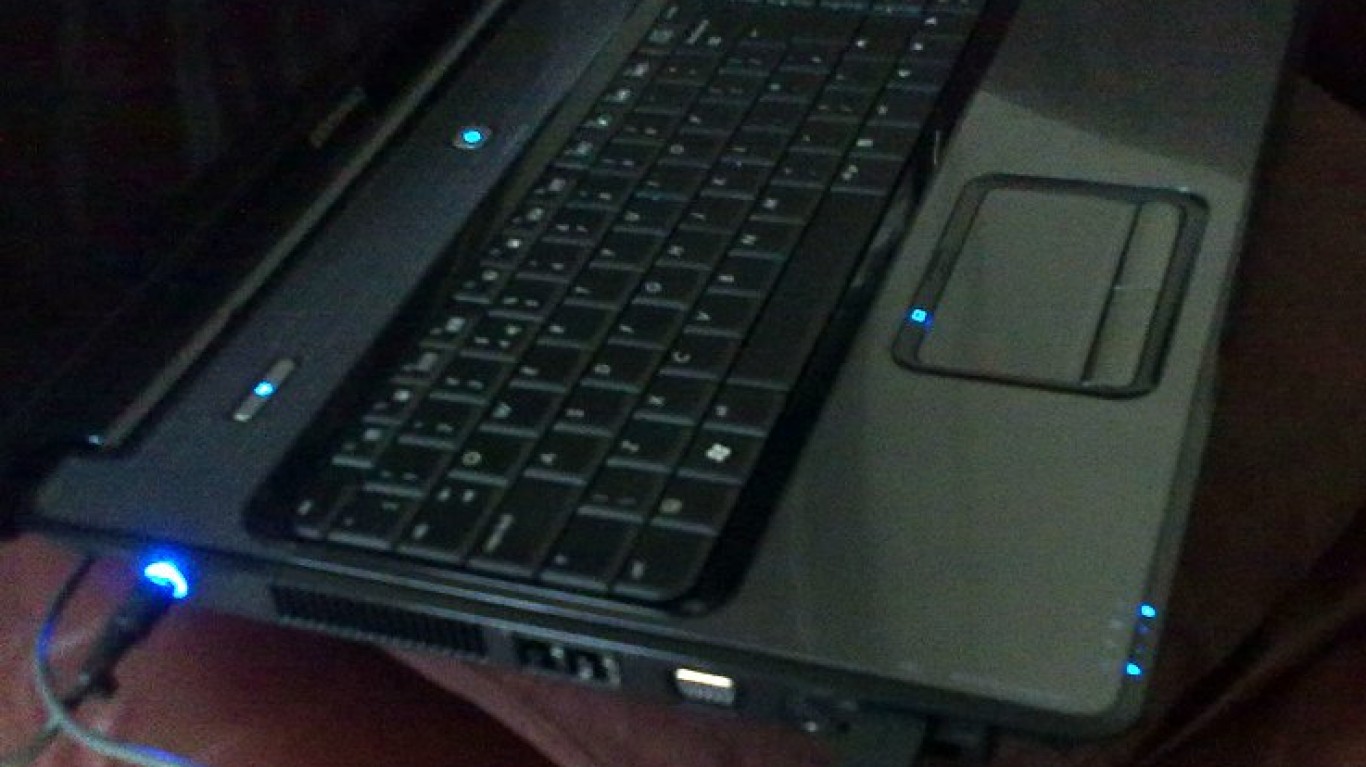
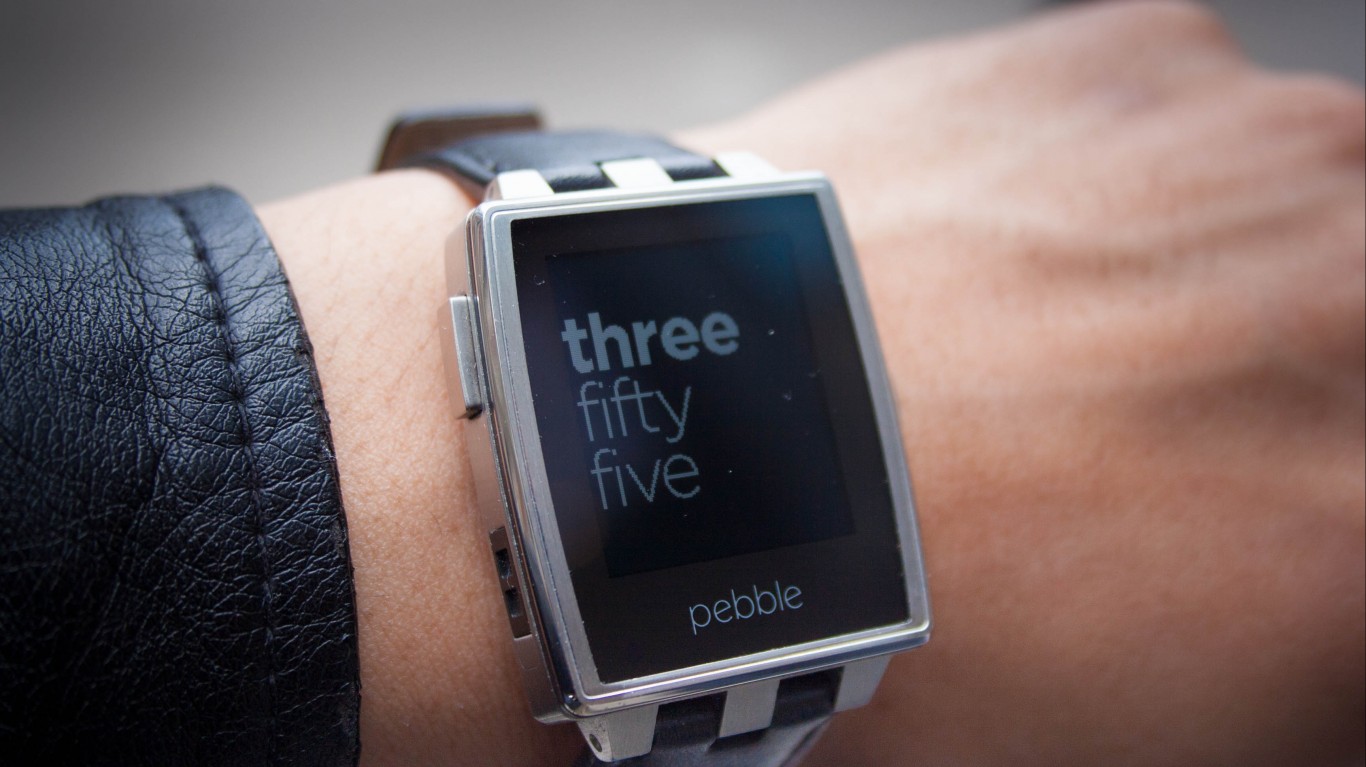
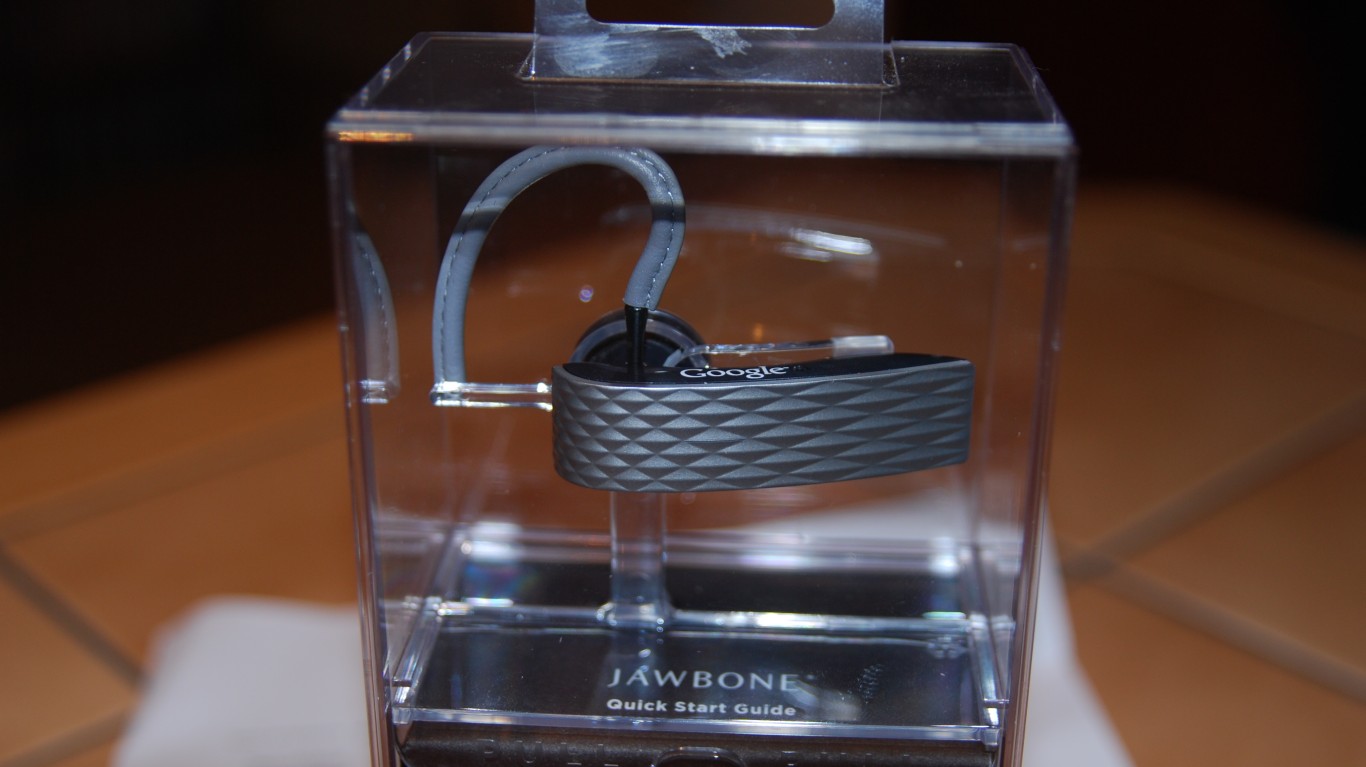
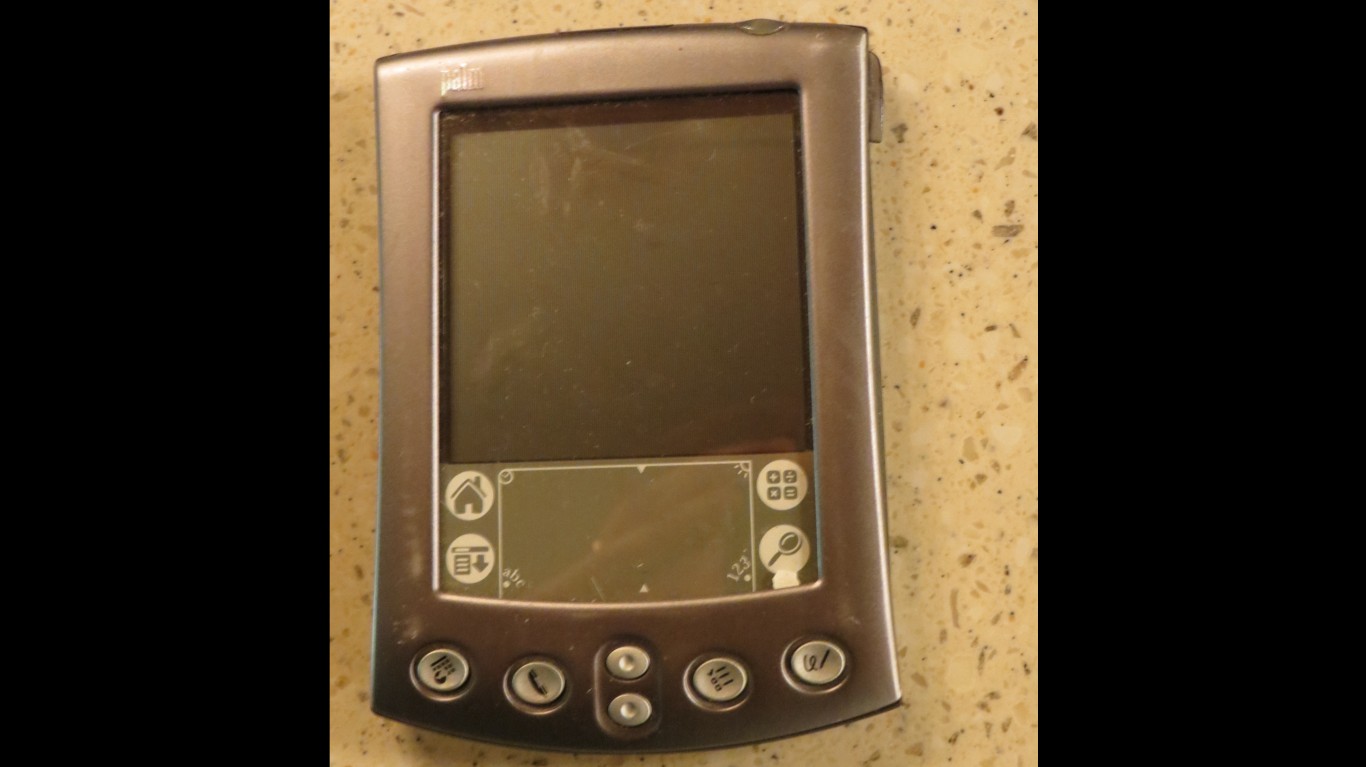
 24/7 Wall St.
24/7 Wall St.